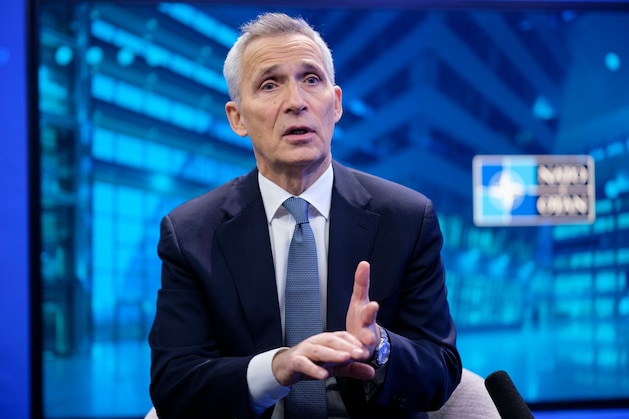A NATO demand could cause trouble among the allies this year: Some countries are calling for defense spending to be increased to at least two percent of the budget. Germany in particular positions itself as an opponent of such a goal. Secretary General Stoltenberg announces negotiations.
There is a risk of a new dispute in NATO over the level of defense spending by the member states. According to Secretary General Jens Stoltenberg, some of the Allies want to significantly tighten the current two percent target. It envisages that by 2024 all NATO countries will approach the benchmark of spending at least two percent of their gross domestic product (GDP) on defense.
“Some allies are determined to make the current target of two percent a minimum,” said Stoltenberg in an interview with the German Press Agency. As chairman of the North Atlantic Council, he will now lead the negotiations on the subject. “We will meet, we will have ministerial meetings, we will have talks in the capitals,” he said.
The aim is therefore to reach an agreement at the latest at the next regular summit. It will be organized in Lithuania’s capital Vilnius on July 11th and 12th.
Stoltenberg did not say which NATO countries are calling for a significantly more ambitious goal. According to diplomats, eastern alliance states such as Poland and Lithuania as well as Great Britain have recently spoken out in favor of agreeing on stricter guidelines in view of Russia’s war against Ukraine. Germany and some other countries like Canada and Belgium are considered opponents of this idea. So far, they have been spending significantly less than two percent of GDP on defense. For Germany, for example, only a rate of 1.44 percent was last expected for 2022.
According to a study by the German Economic Institute (IW), even the recently decided special fund of 100 billion euros should not bring about a long-term improvement. According to the calculations, NATO’s two percent quota could only be reached with the money in 2024 and 2025. According to previous financial plans and growth forecasts, the share in GDP could fall back to 1.8 and 1.2 percent in the two following years.
Stoltenberg did not want to say whether he personally supports the demands for a minimum amount. However, he made it clear that he considers a further increase in defense spending to be indispensable. “Nato is there to make sure a conflict like the one in Ukraine doesn’t escalate beyond Ukraine. For that we need credible deterrence and defense and that is why we need to invest more in our security.”
“Of course it’s always easier to invest in education or infrastructure,” said Stoltenberg. But if you don’t keep the peace, you won’t create anything else and neither secure economic prosperity nor win the fight against climate change. “As the world becomes more dangerous, we need to invest more to prevent war,” he argued.
With a view to the summit in Vilnius, Stoltenberg said: “I think it’s too early to say what our allies will agree on.” However, he assumes that all allies are aware that the war in the Ukraine makes defense investments even more important. He is sure that there will be an agreement at the summit in Lithuania.
According to NATO figures, the leader in the relationship between economic power and defense spending was Greece with a value of 3.76 percent. Then comes the United States with 3.47 percent, which in absolute terms at 822 billion US dollars (768 billion euros) recently spent more than twice as much money on defense as all other alliance states combined. For comparison: Germany, the largest European economy, spent 55.6 billion euros according to the NATO standard, Great Britain as number one in Europe around 53.9 billion pounds (60.9 billion euros).
The dispute over defense spending last escalated during the tenure of US President Donald Trump. He had accused European allies like Germany of free-riding and at times even threatened that the United States would leave the alliance.








